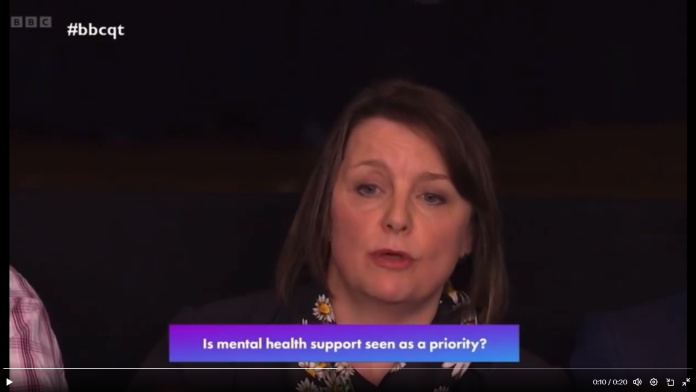First, Rod, if you have time during your lifetime of vomitting dog shit, please read this:
In the fabric of society, poverty weaves a complex and insidious pattern, affecting individuals and communities in myriad ways. One of the most profound yet often overlooked consequences of poverty is its impact on mental health. Poverty is not merely a lack of financial resources; it is a pervasive condition that corrodes the psyche, leaving lasting scars on the mental well-being of those it ensnares.
The Psychological Toll of Poverty
Poverty is a constant source of stress and anxiety, gnawing away at the sense of security and stability that is essential for mental well-being. The daily struggle to meet basic needs—such as food, shelter, and healthcare—can induce chronic stress, triggering a cascade of physiological responses that undermine mental health. The relentless pressure of financial insecurity fosters a sense of powerlessness and hopelessness, eroding self-esteem and exacerbating feelings of worthlessness. Moreover, the stigma associated with poverty can compound these psychological burdens, leading to social isolation and a profound sense of alienation.
Childhood Poverty and Developmental Trauma
For children growing up in poverty, the impact on their mental health can be particularly devastating. Poverty deprives them of opportunities for optimal physical, cognitive, and emotional development, perpetuating a cycle of disadvantage across generations. Exposure to adverse childhood experiences, such as parental neglect, domestic violence, or substance abuse, can inflict deep emotional wounds that reverberate into adulthood. Moreover, the lack of access to quality education and enrichment opportunities further limits their prospects, trapping them in a cycle of poverty and mental distress.
The Intersection of Poverty and Mental Illness
Poverty and mental illness often intersect in a vicious cycle of mutual reinforcement. Mental health disorders can increase the risk of poverty through impaired cognitive function, diminished productivity, and barriers to employment. Conversely, poverty can exacerbate existing mental health conditions, amplifying symptoms and reducing access to treatment and support services. The scarcity of mental health resources in impoverished communities exacerbates disparities in care, leaving those most in need without adequate support. Consequently, individuals living in poverty are disproportionately burdened by conditions such as depression, anxiety, and trauma-related disorders.
Barriers to Accessing Mental Health Care
Access to mental health care is a fundamental human right, yet it remains elusive for many individuals living in poverty. Structural barriers, such as lack of insurance coverage, transportation, and affordable services, impede access to care, forcing many to forego treatment or rely on inadequate resources. Moreover, the pervasive stigma surrounding mental illness within impoverished communities can deter individuals from seeking help, perpetuating a cycle of suffering in silence. Addressing these systemic barriers requires a comprehensive approach that recognizes the interconnectedness of poverty, mental health, and social inequality.
The toll of poverty on mental health is profound and far-reaching, exacting a heavy toll on individuals, families, and communities. To combat this silent epidemic, we must confront the root causes of poverty and inequality while expanding access to mental health care and support services. By fostering resilience, empowering communities, and promoting social justice, we can begin to unravel the complex web of deprivation and despair that ensnares so many. Only through collective action and compassion can we hope to build a future where every individual has the opportunity to thrive, unburdened by the invisible chains of poverty and mental illness.
Rod Liddle is ‘murdered’‘
Someone call the authorities.
— Rick O'Shea (@RickOShea54321) March 21, 2024
I'd like to report a murder.
That of Rod Liddle's reputation, at the hands of an audience member on Question Time.#bbcqt #bbcquestiontime #questiontimepic.twitter.com/uBfFdyrzDZ
It is no surprise that this very disturbed man thinks how he thinks. The only surprise is how much the billionaire corporate media keep giving him a chance to spew it aloud.
If you like our content, join us in helping to bring reality and decency back by SUBSCRIBING to our Youtube channel: https://www.youtube.com/channel/UCQ1Ll1ylCg8U19AhNl-NoTg AND SUPPORTING US where you can: Award Winning Independent Citizen Media Needs Your Help. PLEASE SUPPORT US FOR JUST £2 A MONTH https://dorseteye.com/donate/







